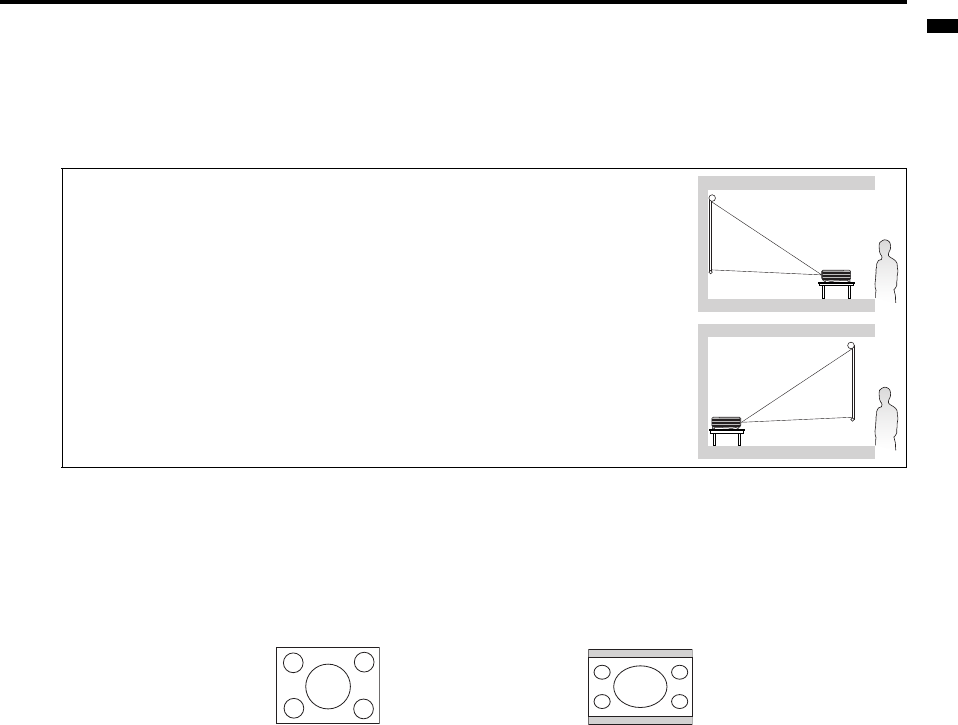
EN-11
ENGLISH
Positioning your projector
Choosing a location
Your room layout or personal preference will dictate which installation location you select. Take into consideration
the size and position of your screen, the location of a suitable power outlet, as well as the location and distance
between the projector and the rest of your equipment.
Your projector is designed to be installed in one of the possible installation locations:
Obtaining a preferred projected image size
The distance from the projector lens to the screen, the zoom setting (if available), and the video format each factors in
the projected image size.
4:3 is the native aspect ratio of this projector. To be able to project a complete 16:9 (widescreen) aspect ratio image,
the projector can resize and scale a widescreen image to the projector's native aspect width. This will result in a
proportionally smaller height equivalent to 75% of the projector's native aspect height.
Thus, a 16:9 aspect image will not utilize 25% of the height of a 4:3 aspect image displayed by this projector. This
will be seen as darkened (unlit) bars along the top and bottom (vertical 12.5% height respectively) of the 4:3
projection display area whenever displaying a scaled 16:9 aspect image in the vertical center of the 4:3 projection
display area.
The projector should always be placed horizontally level (like flat on a table), and positioned directly perpendicular
(90° right-angle square) to the horizontal center of the screen. This prevents image distortion caused by angled
projections (or projecting onto angled surfaces).
The modern digital projector does not project directly forward (like older style reel-to-reel film projectors did).
Instead, digital projectors are designed to project at a slightly upward angle above the horizontal plane of the
projector. This is so that they can be readily placed on a table and will project forward and upwards onto a screen
positioned so that the bottom edge of the screen is above the level of the table (and everyone in the room can see the
screen).
You can see from the diagram on page 13, that this type of projection causes the bottom edge of the projected image to
be vertically offset from the horizontal plane of the projector.
If the projector is positioned further away from the screen, the projected image size increases, and the vertical offset
also increases proportionately.
When determining the position of the screen and projector, you will need to account for both the projected image size
and the vertical offset dimension, which are directly proportional to the projection distance.
Mitsubishi has provided a table of 4:3-aspect-ratio screen sizes to assist you in determining the ideal location for your
projector. There are two dimensions to consider, the perpendicular horizontal distance from the center of the screen
(projection distance), and the vertical offset height of the projector from the horizontal edge of the screen (offset).
1. Front Table
Select this location with the projector placed near the floor in front of the screen. This
is the most common way to position the projector for quick setup and portability.
2. Rear Table
Select this location with the projector placed near the floor behind the screen.
Note that a special rear projection screen is required.
Set Rear Table in the SYSTEM SETUP: Basic > Projector Position menu after
you turn the projector on.
4:3 aspect image in a 4:3
aspect display area
16:9 aspect image scaled to
a 4:3 aspect display area


















